Bihar, a state in Eastern India, is characterized by a strong agrarian economy and has emerged as one of the largest producers of vegetables and fruits in the country. The state holds substantial potential in agriculture and offers significant opportunities for investment in various sectors due to its strategic location and government initiatives.
Strategic Location and Connectivity
Bihar’s strategic geographical location positions it as a gateway to both northern and northeastern India, as well as to Nepal. Key connectivity features include:
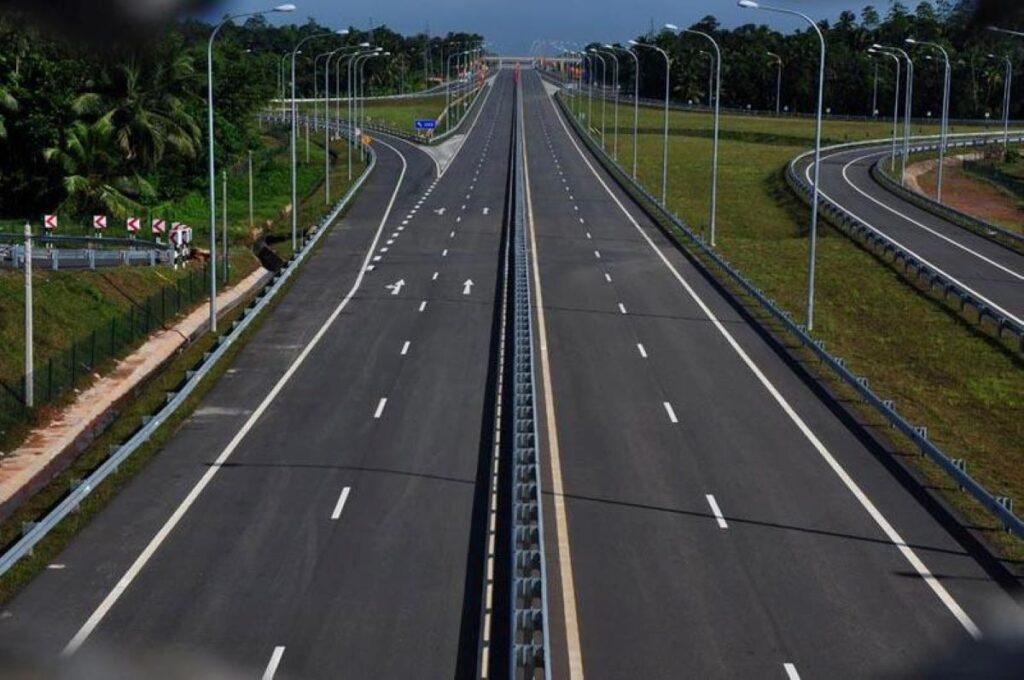
- Golden Quadrilateral Highway: This major highway passes through Bihar’s districts like Kaimur, Sasaram, Aurangabad, Gaya, and Patna, connecting the state to major metropolitan cities across India.
- Eastern Dedicated Freight Corridor: This corridor enhances Bihar’s accessibility to East Indian ports such as Kolkata and Haldia and provides access to raw material sources and mineral reserves in neighboring states like Jharkhand.
Emerging Business Opportunities and Priority Sectors
The Bihar government has prioritized the following sectors for economic growth and development:
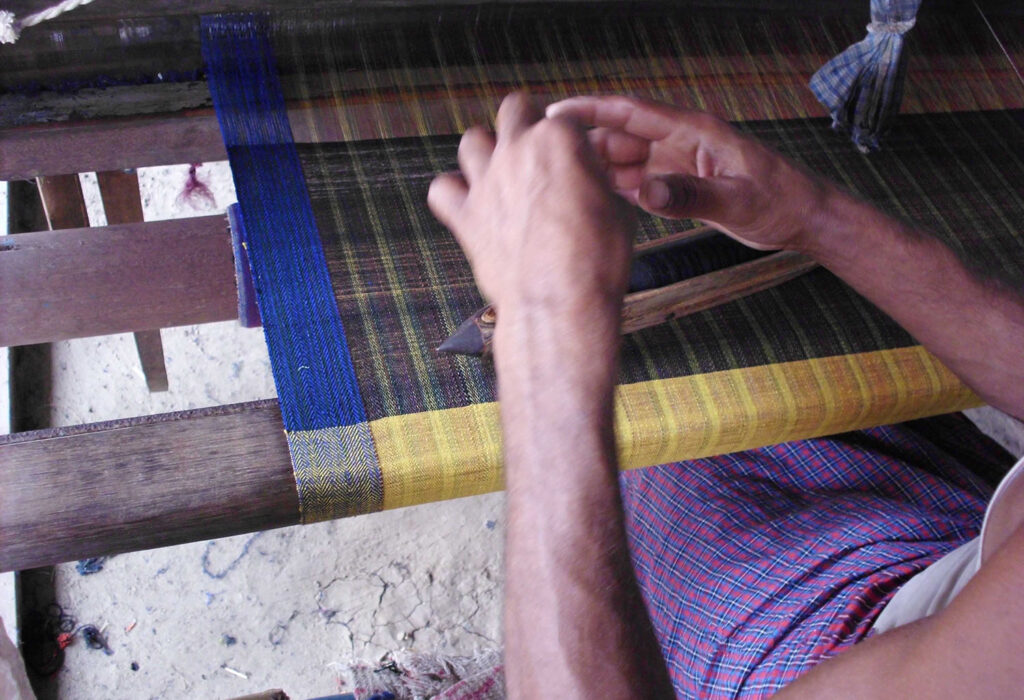
- Food Processing: Capitalizing on its large agricultural base, Bihar is focusing on processing fruits, vegetables, dairy, and other food products.
- IT and IT-enabled Services (ITES): With a young and educated workforce, the state is creating policies to promote IT/ITES industries.
- Textiles and Leather: Traditional industries, particularly textiles, are being revitalized with state support to attract investment.
Industrial and Economic Performance
Growth Trends in Bihar’s Economy:
- Gross State Domestic Product (GSDP):
- For FY 2022-23, Bihar’s GSDP at constant prices was projected to grow by 10.6%, outpacing the national GDP growth rate of 7.2%.
- The state’s agricultural, manufacturing, and service sectors were expected to grow by 6.7%, 6.8%, and 13% respectively. At current prices, these sectors contributed approximately 25%, 17%, and 58% to Bihar’s economy.
- The per capita GSDP of Bihar for 2022-23 was estimated at ₹59,637, reflecting a 14% increase from the previous year.
- Projections for FY 2024-25:
- Bihar’s GSDP for 2024-25 (at current prices) is projected to reach ₹9.76 trillion, showing a growth of 13.5% over the previous year.
Economic Performance over the Last Five Years:
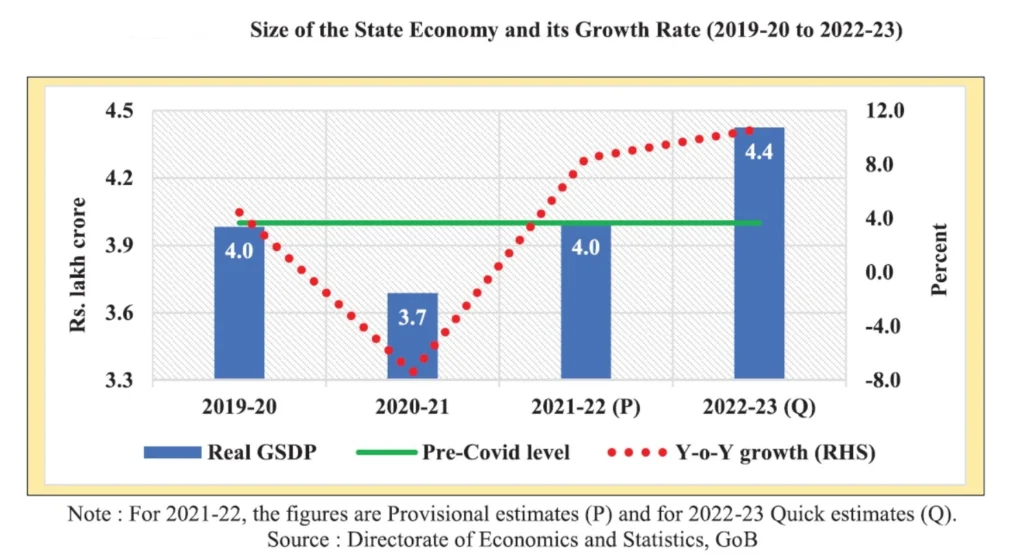
- Bihar’s contribution to the national economy stood at 2.8% as of FY 2022-23.
- The state’s GSDP increased by 29% over five years, reaching ₹4.42 trillion in FY23.
- The state’s capital expenditure (capex) rose by 35% in FY23, totaling ₹45,735 crores, indicating significant investment in infrastructure.
Infrastructure Development and Sectoral Growth
- National Highways:
- The length of national highways in Bihar increased by 23% over five years, reaching 5,969 km in FY23.
- Tax Revenue and Investment:
- Bihar’s state tax revenue saw a 39% increase, reaching ₹41,387 crores in FY23.
Special Economic Zones (SEZs):
The central government has approved the development of two SEZs in Bihar:
- Kumarbagh (West Champaran district)
- Nawanagar (Buxar district)
These will be the first SEZs in the state, offering a boost to industrial development.
Top Sectors Receiving Private Investments (2017-2022)
- Food Processing: ₹2,204.3 crores
- General Manufacturing: ₹916.98 crores
- Plastic and Rubber: ₹321.87 crores
- Renewable Energy: ₹287.76 crores
- Tourism: ₹228.57 crores
- Healthcare: ₹161.86 crores
- Textile: ₹30.82 crores
- IT & ITES: ₹29.12 crores
- Small Machine Manufacturing: ₹4.06 crores
- Leather: ₹1.97 crores
- Technical Education: ₹1.24 crores
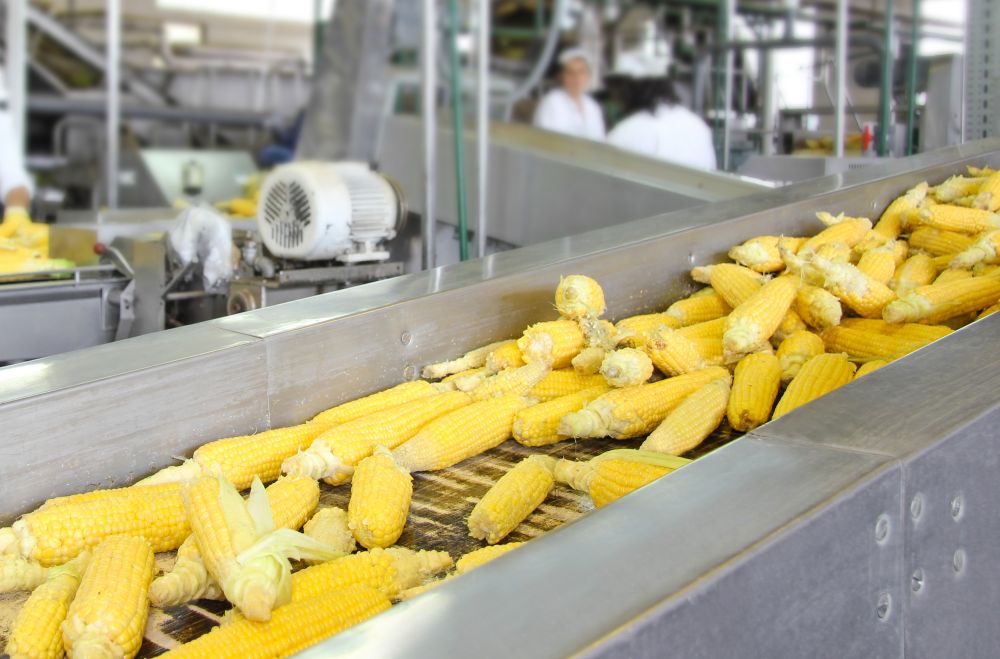
Sectoral Insights:
- Food Processing: As the largest producer of litchi and makhana, the state provides incentives for businesses engaged in the processing of these products.
- Textiles: Home to approximately 3.66 lakh weavers, Bihar offers incentives for investment in textiles and leather industries.
- IT/ITES and ESDM: Strategic incentives aim to develop the IT/ITES sector and Electronics System Design & Manufacturing industry.
Government Policies and Initiatives
Several policies have been introduced to promote industrial development:
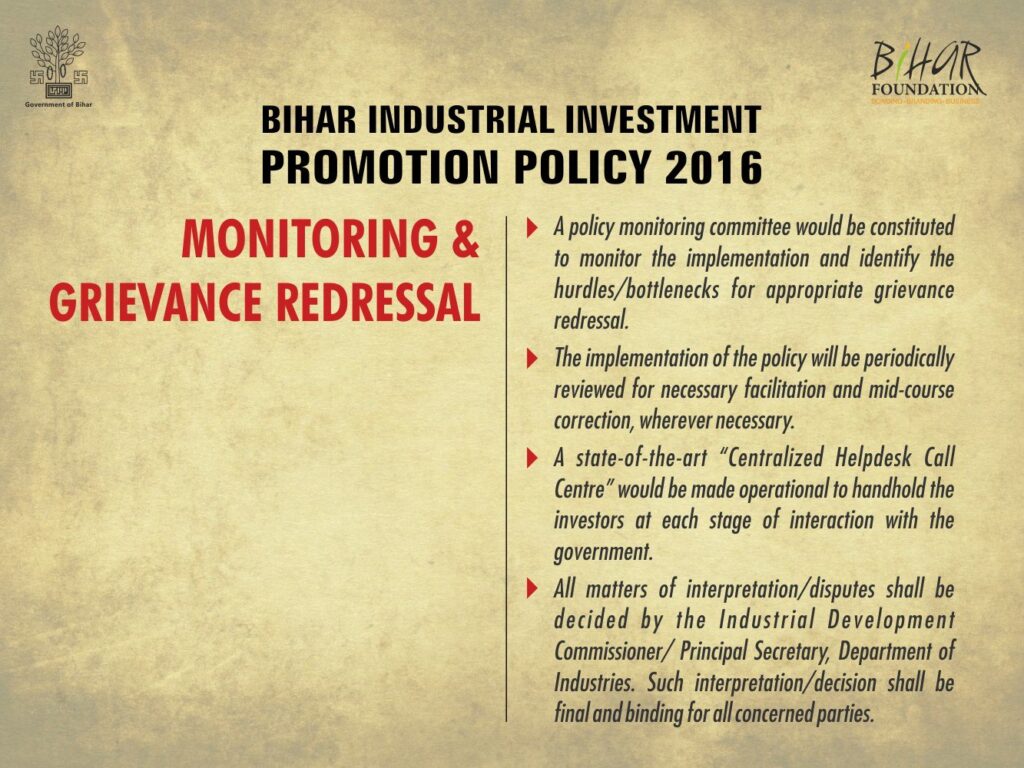
- Bihar Industrial Investment Promotion Policy (2016, amended 2020, extended to 2025)
- Bihar Agri Investment Promotion Policy (2020)
- Ethanol Production Promotion Policy (2021)
- Oxygen Production Promotion Policy (2021)
- Bihar Wood-Based Industries Investment Promotion Policy (2020)
These policies are designed to make the state more investor-friendly and to facilitate private investment across various sectors.
Plug & Play Industrial Sheds:
Bihar offers approximately 2.4 million square feet of ready-to-move plug-and-play industrial sheds across nine districts, including Patna, Muzaffarpur, Vaishali, West Champaran, Begusarai, Bhagalpur, Purnea, Saharsa, and Nalanda. The objective is to enable entrepreneurs to start operations quickly by just installing their equipment. The monthly rent for these sheds starts at ₹4 per square meter, with an initial lease period of 15 years.
Foreign Direct Investment (FDI) in Bihar
Between October 2019 to January 2022, Bihar received total FDI worth ₹167.09 crores. The FDI equity inflow for this period was as follows:
- October 2019 – March 2020: ₹5.54 crores
- April 2020 – March 2021: ₹45.08 crores
- April 2021 – January 2022: ₹116.47 crores
Investment Approvals and Private Sector Investment:
- As of September 2023, under the Bihar Industrial Investment Promotion Policy 2016, the state government has approved 2,695 investment proposals worth approximately ₹6,800 crores.
- Private sector investments between 2017-2022 were as follows:
- 2017-18: ₹12,102 crores
- 2018-19: ₹8,810 crores
- 2019-20: ₹3,174 crores
- 2020-21: ₹6,150 crores
- 2021-22: ₹11,835 crores
Invest Bihar Summit 2023

The Invest Bihar Summit 2023 attracted ₹5,05,300 crores in proposed investments across diverse sectors:
- General Manufacturing: ₹3,13,940 crores
- Food Processing: ₹1,45,640 crores
- Services: ₹31,790 crores
- IT & ITES: ₹7,175 crores
- Textile & Leather: ₹6,748 crores
Conclusion
Bihar is fast emerging as a promising investment destination due to its strategic location, evolving infrastructure, and supportive government policies. With a focus on key sectors like food processing, IT, textiles, and healthcare, along with ongoing initiatives like SEZ development and the plug-and-play industrial sheds, Bihar presents ample opportunities for investors looking to capitalize on its growth trajectory. If you are looking to capitalise on this opportunity and want to invest in companies which are expanding in Bihar, then you need to open a demat account.
